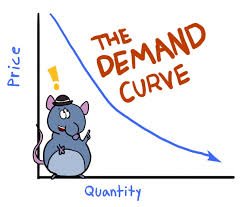demand
英 [dɪˈmɑːnd]
美 [dɪˈmænd]
- vt. 要求;需要;查询
- vi. 需要;请求;查问
- n. [经] 需求;要求;需要
- n. (Demand)人名;(德)德曼德
使用频率:

记忆方法
记忆“demand”的方法是将其分解为两部分:“de-”表示强调或者从下往上,“mand”可以联想到“mandate”或“command”,意味着命令或要求。因此,“demand”可以理解为强烈要求或命令。通过这种关联,你可以在脑海中形成一个场景,比如有人强烈地要求或者命令,从而帮助记忆。
以上内容由AI生成, 仅供参考和借鉴
中文词源
demand 要求
de-, 向下,强调。-mand ,要求,命令,词源同command ,mandate. 即强烈要求。
英语词源
- demand
-
demand: [13] Latin dēmandāre meant ‘entrust something to someone’. It was a compound verb formed from the intensive prefix dē- and mandāre ‘entrust, commit’ (source of English mandate). As it passed via Old French demander into English, its meaning developed to ‘give someone the responsibility of doing something’, and finally ‘order’.
=> mandate - demand (v.)
- late 14c., "ask, make inquiry," from Old French demander (12c.) "to request; to demand," from Latin demandare "entrust, charge with a commission" (in Vulgar Latin, "to ask, request, demand"), from de- "completely" (see de-) + mandare "to order" (see mandate). Meaning "to ask for as a right" is early 15c., from Anglo-French legal use. Related: Demanded; demanding.
- demand (n.)
- late 13c., "a question," from Old French demande (see demand (v.)). Meaning "a request, claim" is from c. 1300. In the political economy sense (correlating to supply) it is attested from 1776 in Adam Smith.
权威例句
- 1. The demand generated by one factory required the construction of another.
- 一家工厂产生的需求使得必须再建造一家工厂。
- 2. He was much in demand as a lecturer in the US.
- 他的讲座在美国很受欢迎。
- 3. The fusty old establishment refused to recognise the demand for popular music.
- 这一古板的老旧机构拒绝承认人们对流行音乐的需求。
- 4. The demand to see her work is much greater than expected.
- 想要参观她作品的人数大大超出了预期。
- 5. Cheap goods are available, but not in sufficient quantities to satisfy demand.
- 有一些廉价的商品,但是数量不足以满足需求。
